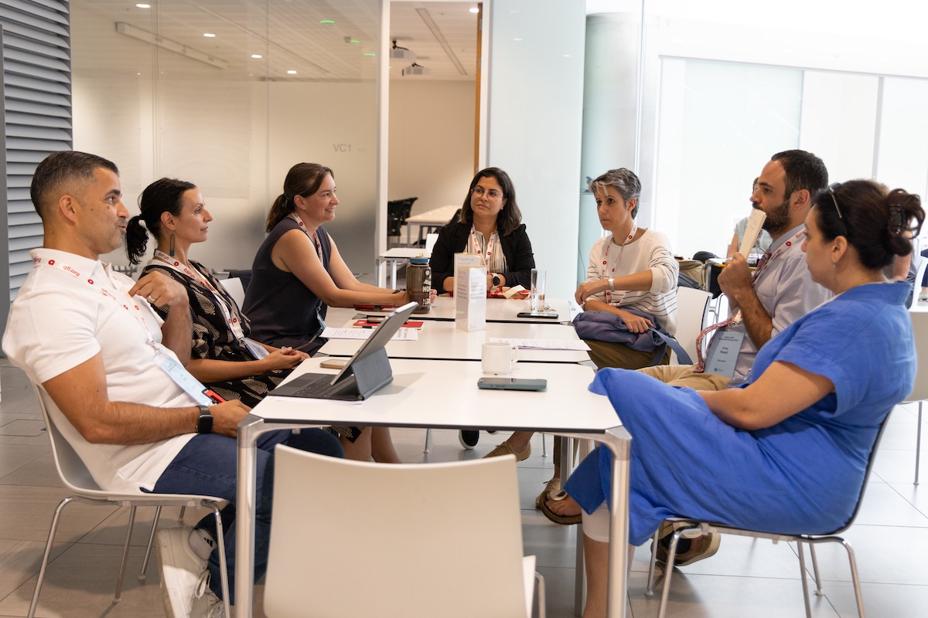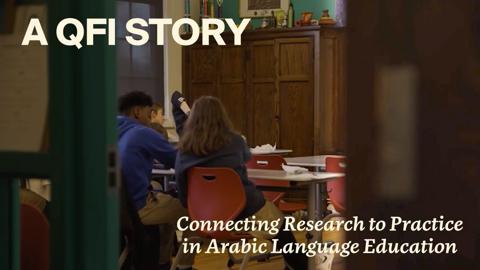
Something went Wrong
Try entering your email again or contact us at support@qfi.org
Try entering your email again or contact us at support@qfi.org
You’ll receive an email with a confirmation link soon.
Research in education is most powerful when it informs practice. Yet, for many educators, research findings can be difficult to access, interpret, or apply in meaningful ways. Within the Arabic language education community, questions remain about the most effective approaches to teaching Arabic, particularly in primary and secondary schools. While research exists, it is largely concentrated in higher education and focused on adult learners. There is a clear gap in research that addresses the needs of younger students and their teachers.
See QFI’s research agenda in action.
QFI’s Research Department was established to address this challenge head-on. QFI's goal is to elevate Arabic to the same level of support and visibility as other world languages, such as Spanish and French, and one way we do this is by building a research ecosystem that is collaborative, practical, and community-driven.
From the beginning, QFI has grounded its approach in sustained dialogue with educators, students, researchers, and policymakers. Over the last 15 years, this ongoing engagement has shaped programming and revealed the infrastructure needed to sustain Arabic language education in schools. The result is a living Research Agenda, one shaped not only by theory, but by the voices and experiences of those working directly in the field.
Key milestones in QFI’s research journey include:
2017 – Identified five strategic areas of inquiry based on programmatic insights
2021 – Released the first Research Call for Proposals and awarded initial grants
2022 – Drafted the first version of the Research Agenda
2023 – Partnered with Oxford University for a comprehensive scoping review
2024 – Launched the Priority Setting Partnership to define urgent research questions
2024–2025 – Hosted QFI Oxford Research Forums and finalized the Top 10 Priority Questions
September 2024 – Issued a refined Request for Research Proposals inviting collaborative projects
2025–2026 – Initiated an annual funding cycle to sustain research and its practical application
Through collaborative partnerships and programming, QFI identified five strategic areas that now guide its research efforts. These areas reflect key aspects of the Arabic teaching and learning ecosystem:
QFI’s Research Agenda is designed to be close to practice, not just academic. It offers:
From a multi-country study of Arabic programs (SALP) to a searchable database of research spanning six decades, to annual forums that bring educators and researchers together, QFI is building the infrastructure needed to make Arabic education stronger, more connected, and more impactful.
This is just the beginning. Through collaboration, research, and shared commitment, QFI is helping build a connected ecosystem where teaching, learning, and policy come together to ensure Arabic is accessible and supported in primary and secondary schools.
Studies & Publications
QFI supports research surrounding Arabic language education for school-aged learners.



